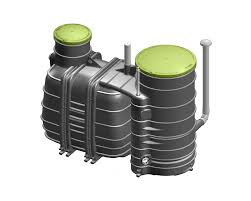We need to treat our home garbage more and more as we try to live more environmentally friendly lives. As towns continue to grow and become more populated, it is important to handle household garbage properly to ensure a healthy future and protect the environment. During the course of this essay, we will talk about the difficulties of handling domestic wastewater treatment, as well as its uses and creative solutions that help make homes better and healthier.
Understanding Domestic Wastewater
Sewage, which is also sometimes called “domestic wastewater,” is the name for the water-based waste that people make in their houses. In this trash are the waters that come from sinks, baths, kitchen machines, and toilets. It is important to properly treat this pollution to protect water sources, keep the world safe, and keep people healthy.
The Importance of Domestic Wastewater Treatment
Environmental Preservation
Effective cleaning keeps poisons that are harmful to aquatic life out of rivers. This helps protect ecosystems and aquatic life.
Public Health Protection
Proper cleaning removes contaminants and germs from the water source. This protects public health and lowers the risk of getting sick from water.
Water Resource Conservation
The safe usage of water made possible by wastewater treatment makes it possible to save water and lower the demand for natural supplies.
Key Processes in Domestic Wastewater Treatment
Screening and Primary Treatment
The first steps in treating and cleaning home garbage are very important and must be done.
Biological Treatment (Activated Sludge Process)
Once screening has taken out the big pieces of trash and solids, primary sedimentation is used to settle the particles that are still in the fluid. Screening is the first step in the process.
Secondary Sedimentation
In the process of breaking down organic pollution into harmless leftovers, aeration tanks and helpful bacteria are used. Secondary sedimentation is the process of settling the particles that are still in the water after biological cleaning. This makes the water clearer.
Tertiary Treatment
Chemical cleaning and filtering are just two of the advanced methods used to make the water even better while making sure that strict environmental rules are followed.
Disinfection
As a last step, disinfectants like chlorine or UV light are used to get rid of any remaining germs in the water to make sure it is safe to use again or throw away.
Innovative Solutions in Domestic Wastewater Treatment
Decentralized Treatment Systems
Wastewater Decentralized treatment systems are small and portable, so they can be used in single homes or small towns. They are good at treating wastewater locally. When used in homes, these machines are great for cleaning up garbage.
Greywater Recycling
Recycling greywater, which comes from places like sinks and toilets, so it can be used for things other than drinking is called greywater recycling, and it helps freshwater supplies last longer.
Constructed Wetlands
“Built-in wetlands” are natural areas that are made to look like swamps. These environments help poisons break down naturally by having bugs and plants associate with each other.
Green Infrastructure
Natural elements like verdant swales and porous surfaces can be used in urban planning to control rains and ease the load on centralized water treatment plants.
Implementing Sustainable Practices at Home
People can control wastewater at home as well as at central treatment plants by doing easy but effective things like:
Water Conservation
People can control wastewater at home as well as at central treatment plants by doing easy but effective things like saving water, using water-efficient appliances to cut down on water use, fixing leaks right away, and making habits that are water-conscious.
Proper Waste Disposal
Making sure that home trash is thrown away properly is an important part of good waste management because it keeps harmful materials out of the garbage system.
Regular System Maintenance
Doing regular maintenance on the system Making sure that septic systems get regular repairs and checks is very important to keep them clean and free of problems.
Conclusion
As we fight the effects of more people living in cities and more people moving into cities, it is very important that home wastewater disposal systems work well. This is because these systems are important for both general health and the long-term health of the environment. Understanding the steps involved, realizing how crucial it is to act ethically, and being open to new ideas can help us achieve a future that is more sustainable, healthy, and clean. Not only is treating wastewater from homes necessary for technical reasons, but it is also the right thing to do because it affects future generations’ quality of life.
